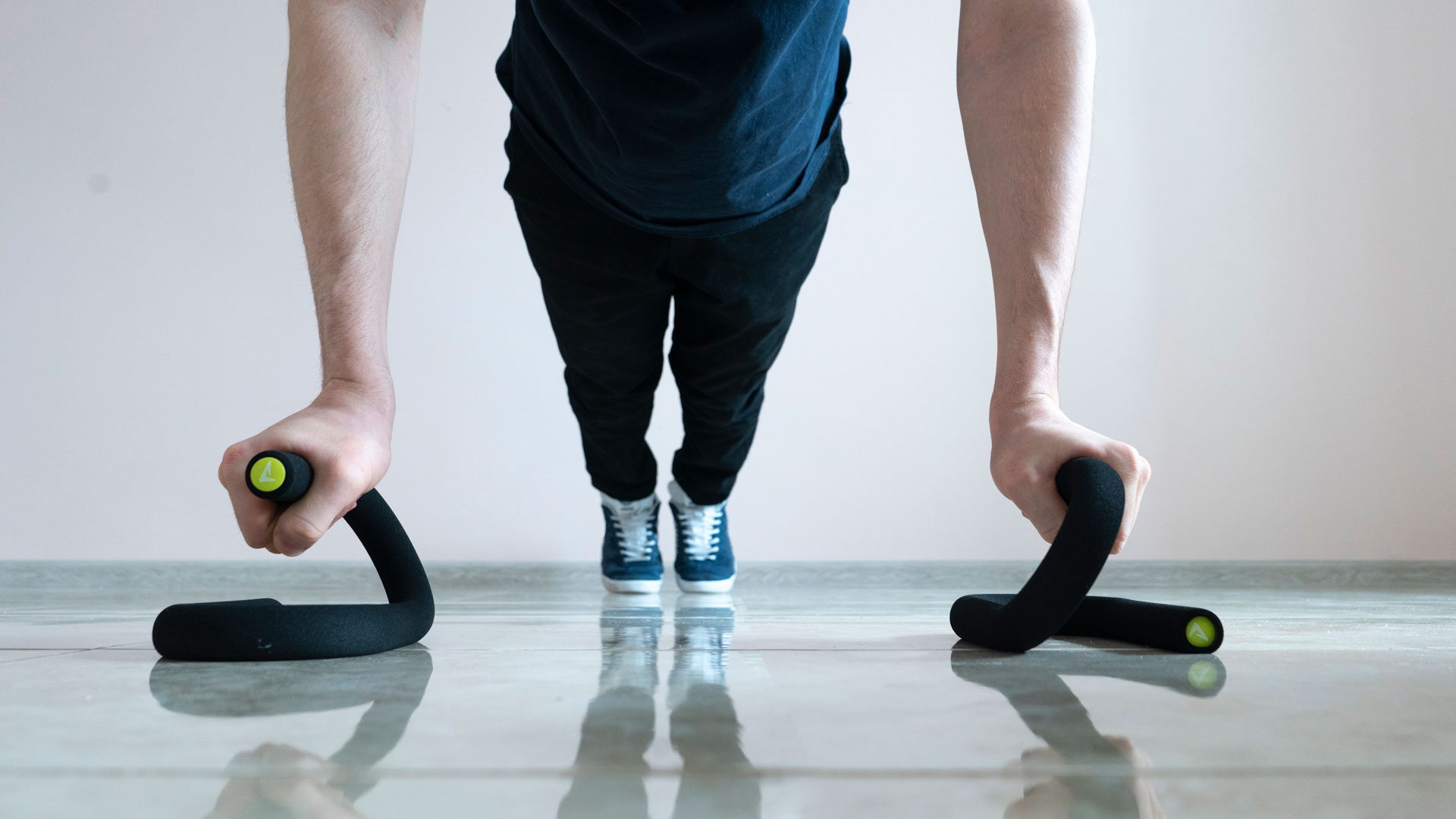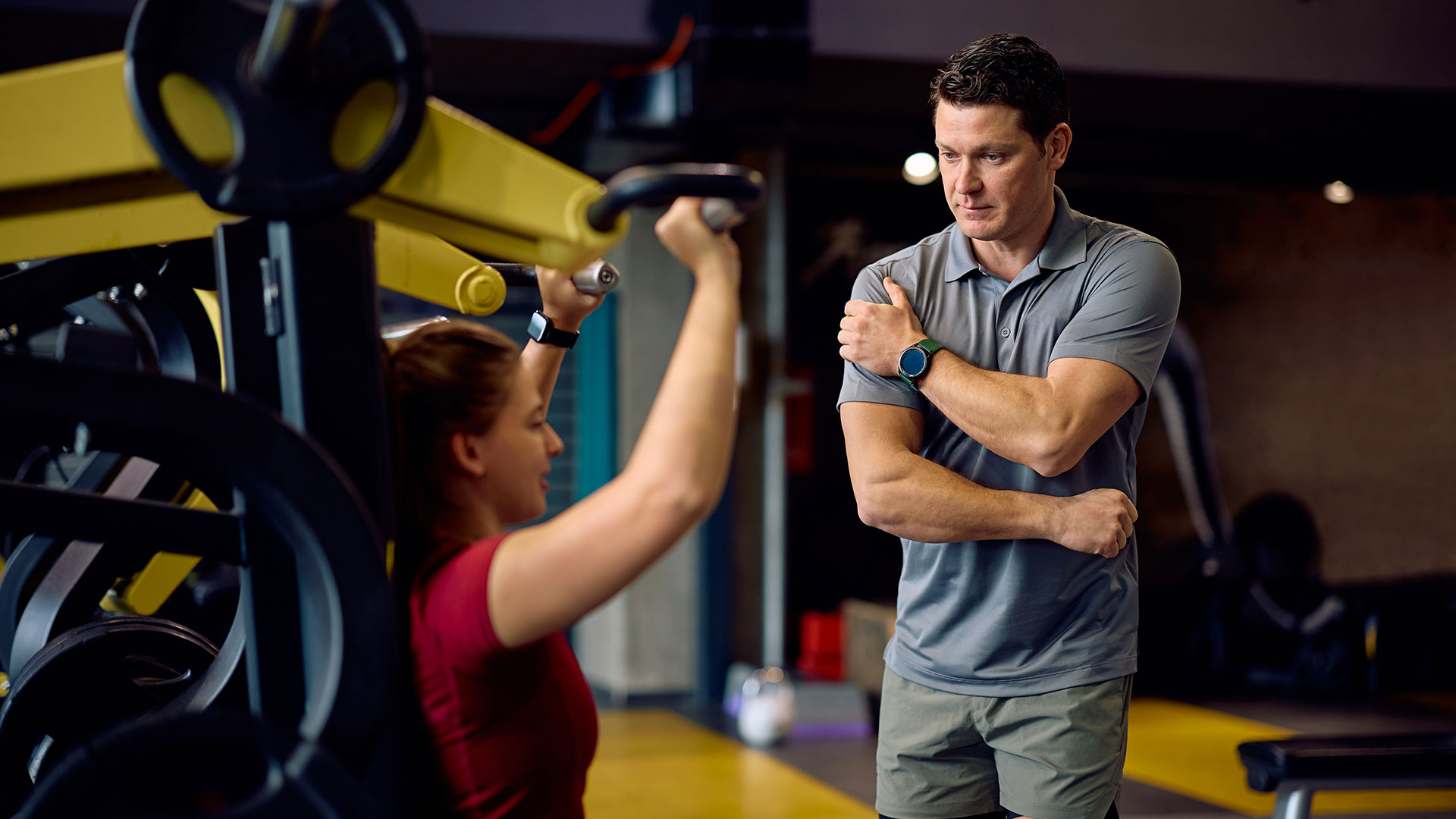Exercise and nutrition are two sides of the same coin. You can spend hours in the gym lifting weights or running on the treadmill, but if you don’t fuel your body properly, your performance will plateau and recovery will slow down. Nutrition is not just about calories it’s about providing your body with the right balance of energy and nutrients to train effectively, recover faster, and achieve long-term fitness goals.
Many beginners underestimate how much their diet influences their workouts. They may skip meals, rely heavily on protein powders, or cut carbs in hopes of faster results. These choices often backfire, leading to fatigue, poor recovery, and even injury. The truth is that nutrition for fitness is about balance, not extremes. With the right approach, your meals become your most powerful training partner.
For someone new to the gym, learning the basics of exercise nutrition sets the foundation for consistent progress. Just like you wouldn’t drive a car without fuel, you shouldn’t train your body without the nutrients it needs. In this article, we’ll break down the essential principles of fitness nutrition, explore the best foods for beginners, and highlight how diet supports energy, muscle recovery, and overall health.
The Science of Nutrition and Exercise
Your body functions like a machine, and food is the fuel that powers it. But not all fuels are the same. Different nutrients serve different purposes during training, recovery, and overall health. To understand nutrition for fitness, it helps to look at the three macronutrients carbohydrates, proteins, and fats and the role of micronutrients like vitamins and minerals.
-
Carbohydrates are your primary source of quick energy. They break down into glucose, which is stored in muscles and the liver as glycogen. During exercise, glycogen is your go-to energy reserve. Without it, fatigue sets in quickly.
-
Proteins provide the building blocks (amino acids) needed to repair and grow muscles after training. Without enough protein, your muscles cannot fully recover from exercise stress.
-
Fats support hormone production, joint health, and long-lasting energy. They may not fuel high-intensity workouts directly, but they provide essential balance in your diet.
Micronutrients such as iron, calcium, and B vitamins also play key roles. Iron helps carry oxygen to your muscles, calcium supports bone health, and B vitamins aid in converting food into usable energy. Research consistently shows that athletes and beginners alike perform better when they maintain a balanced intake of these nutrients.
Example: A beginner who eats only protein shakes but neglects carbs will struggle with energy during workouts. On the other hand, someone who eats mostly refined carbs but little protein may have the energy to train but won’t recover properly. Both extremes limit progress. The solution lies in balanced meals that combine all three macronutrients.
Carbohydrates: The Body’s Primary Fuel
Carbohydrates are often misunderstood, especially among beginners who fear that “carbs make you fat.” In reality, carbs are the body’s preferred fuel source for exercise. When you eat carbs, your body stores them as glycogen in the muscles and liver. During workouts (especially cardio or strength training) glycogen is broken down to provide energy for muscle contractions.
Without enough carbs, your body struggles to perform at a high level. Research shows that glycogen depletion is one of the main reasons for early fatigue during endurance exercise. Even for strength training, carbs play an important role by supporting explosive movements and stabilizing blood sugar levels.
For beginners, the type of carbs you eat matters. Complex carbs (like oats, brown rice, whole wheat bread, quinoa, and sweet potatoes) digest slowly and provide steady energy. Simple carbs (like fruit or white bread) digest quickly and can give you a quick energy boost before or after a workout. Both have their place in a fitness diet.
Practical examples:
-
Pre-workout: a banana with peanut butter, or oatmeal with berries.
-
Post-workout: rice with chicken, or a fruit smoothie with whey protein.
-
Everyday meals: whole grain pasta, sweet potatoes, or beans with vegetables.
For beginners, carbs are not the enemy they are your ally. When balanced correctly, they provide the energy to train harder, recover faster, and build consistency in your fitness journey.
Protein: Essential for Muscle Growth and Recovery
Protein is often the first nutrient that comes to mind when people think about fitness, and for good reason. Every time you lift weights, perform push-ups, or even jog, you create tiny tears in your muscle fibers. This is a normal and necessary part of training the body adapts by repairing these fibers to make them stronger and sometimes larger. The raw material for this repair process is protein.
Proteins are made of amino acids, often called the building blocks of muscle. Some amino acids are produced naturally by the body, while others(known as essential amino acids) must come from food. One particular amino acid, leucine, plays a critical role in stimulating muscle protein synthesis, the process by which your body builds new muscle tissue.
For beginners, one common mistake is either not eating enough protein or relying solely on supplements. While protein shakes are convenient, whole foods such as chicken, fish, eggs, beans, Greek yogurt, and lentils provide not only protein but also vitamins and minerals that support overall health.
Recommended Intake for Beginners:
-
General guideline: 1.6–2.2 grams of protein per kilogram of body weight per day.
-
Example: A beginner weighing 70 kg should aim for 110–150 grams of protein daily.
Practical Examples of Protein-Rich Foods:
-
Breakfast: Greek yogurt with fruit and oats.
-
Lunch: Grilled chicken breast with rice and vegetables.
-
Snack: Cottage cheese with nuts or a protein shake.
-
Dinner: Salmon with quinoa and a salad.
Research consistently shows that individuals who consume adequate protein see better muscle recovery, reduced soreness, and improved long-term strength and body composition. Beginners should understand that protein is not just for “bodybuilders” it is essential for anyone who exercises, regardless of their goal.
Fats: Energy and Hormonal Balance
For decades, fats were unfairly demonized as the “bad” nutrient. Many beginners still fear fat, believing that eating it automatically leads to weight gain. The reality is that fats are not only safe but absolutely necessary for exercise performance and overall health when consumed in the right amounts and from the right sources.
Fats serve several key functions:
-
Energy supply: While carbs fuel short, intense bursts of activity, fats provide long-lasting energy, especially during lower-intensity exercise.
-
Hormonal health: Fats are required for the production of hormones like testosterone and estrogen, which are critical for muscle growth, recovery, and overall well-being.
-
Joint and cell health: Omega-3 fatty acids, in particular, reduce inflammation and keep joints lubricated an important factor for anyone lifting weights or running regularly.
Best Sources of Healthy Fats:
-
Avocados
-
Nuts and seeds (almonds, walnuts, chia, flaxseeds)
-
Olive oil and other cold-pressed oils
-
Fatty fish (salmon, mackerel, sardines)
-
Eggs
How Much Fat Do You Need?
Most research suggests that fats should make up 20–30% of your daily calorie intake. Too little fat can disrupt hormone production, while too much (especially from processed or fried foods) can lead to unwanted fat gain and sluggishness during workouts.
Example:
-
A beginner eating 2,000 calories a day should aim for about 45–70 grams of fat. That could be a handful of nuts as a snack, olive oil in cooking, and a serving of salmon for dinner.
One important distinction: not all fats are equal. Unsaturated fats (like those from plants and fish) are beneficial, while trans fats and excess saturated fats (found in fried foods, processed snacks, and fast food) harm cardiovascular health and slow down performance.
For beginners, the key takeaway is this: don’t fear fat. Instead, choose the right sources and consume it in balance with carbs and protein. Healthy fats make your workouts smoother, your recovery faster, and your overall health stronger.
Hydration and Electrolytes in Nutrition for Fitness
Hydration is one of the most underrated parts of nutrition for fitness. Your body is made up of about 60% water, and every physiological process including muscle contractions, energy production, and temperature regulation depends on it. During exercise, you sweat to cool down, and with that sweat you lose not only water but also electrolytes such as sodium, potassium, and magnesium.
When fluid and electrolytes drop too low, performance suffers. Even mild dehydration (a loss of just 2% of body weight in fluids) can reduce endurance, slow reaction time, and increase the risk of cramps. Beginners often mistake fatigue or dizziness in the gym for poor fitness, when in reality, dehydration is the culprit.
Electrolytes are just as important as water. Sodium regulates fluid balance, potassium supports muscle contractions, and magnesium plays a role in energy production. That’s why athletes who sweat heavily in hot environments often benefit from sports drinks or electrolyte powders.
Practical Strategies for Beginners:
-
Pre-workout: Drink 400–600 ml of water 1–2 hours before training.
-
During workout: Take small sips every 15–20 minutes, especially during sessions over 30 minutes.
-
Post-workout: Replace 1.5 liters of fluid for every kilogram of body weight lost (a simple weigh-in before and after exercise can help measure this).
Good Sources of Electrolytes:
-
Bananas (potassium)
-
Spinach and leafy greens (magnesium)
-
Coconut water (natural sodium, potassium, magnesium)
-
Lightly salted nuts and seeds
Bottom line: hydration and electrolytes aren’t optional they are part of your workout nutrition. Think of water as your first supplement.
Pre-Workout Nutrition for Beginners
What you eat before a workout sets the tone for your performance. The goal of a pre-workout meal is to give you enough energy to train effectively without feeling sluggish or bloated. For beginners, the focus should be on easily digestible foods that provide a balance of carbohydrates for energy and protein for muscle support.
Timing Matters:
-
2–3 hours before training: A balanced meal with carbs, protein, and a small amount of fat.
-
30–60 minutes before training: A lighter snack that emphasizes carbs and a little protein.
Examples of Balanced Pre-Workout Meals (2–3 hours before):
-
Chicken breast with rice and steamed vegetables.
-
Whole grain pasta with tomato sauce and lean ground turkey.
-
A quinoa salad with beans and avocado.
Examples of Quick Pre-Workout Snacks (30–60 minutes before):
-
Banana with a tablespoon of peanut butter.
-
A slice of whole grain toast with cottage cheese.
-
A small fruit smoothie with Greek yogurt.
Scientific studies show that consuming carbohydrates before exercise helps maintain glycogen levels and improves endurance. Protein before workouts supports muscle repair and prevents breakdown during training. Fats should be kept moderate because they slow digestion and may cause discomfort if eaten too close to exercise.
Beginner Tip: Don’t train on an empty stomach unless you’re deliberately practicing fasted cardio for specific goals. Most beginners perform better, recover faster, and feel less fatigued when they eat something light before training.
Post-Workout Nutrition: Food for Muscle Recovery
The period after your workout is when your body shifts into repair mode. Exercise depletes glycogen stores, damages muscle fibers, and stresses the nervous system. Proper post-workout nutrition speeds up recovery, reduces soreness, and maximizes the benefits of your training.
The two most important nutrients after exercise are:
-
Carbohydrates: to replenish glycogen stores and restore energy.
-
Protein: to repair and rebuild muscle tissue.
Research shows that consuming protein and carbs together within the first 1–2 hours post-exercise enhances recovery more effectively than eating either alone. This is often referred to as the “anabolic window.” While newer studies suggest the window is longer than once believed, eating within a few hours of training is still recommended for optimal results.
Examples of Post-Workout Meals:
-
Grilled salmon with rice and roasted vegetables.
-
Turkey sandwich on whole grain bread with a side of fruit.
-
Protein shake with banana and oats blended in.
-
Greek yogurt with berries and honey.
Macronutrient Guidelines for Recovery:
-
Protein: 20–40 g (depending on body weight and workout intensity).
-
Carbohydrates: 1–1.2 g per kilogram of body weight.
-
Fat: keep moderate healthy fats are important but too much immediately post-workout may slow digestion.
For beginners, post-workout nutrition doesn’t need to be complicated. The key is to eat a balanced meal with protein and carbs soon after training. This not only aids recovery but also builds the habit of treating nutrition as part of your workout routine.
Beginner Diet and Workout: Putting It Together
Now that we’ve broken down the science, let’s put it into practice. For beginners, the goal is consistency. You don’t need a perfect plan you need a sustainable one. A simple structure of three main meals and two snacks works well for most people starting out. Each meal should contain a balance of carbs, protein, and healthy fats, while snacks can be smaller, nutrient-dense options.
Here’s a sample 1-day beginner meal plan that supports both workouts and recovery:
Breakfast (Pre-Workout if Morning Training):
-
Oatmeal cooked with milk
-
Topped with banana slices and a spoon of peanut butter
-
A boiled egg on the side
Mid-Morning Snack:
-
Greek yogurt with berries and a sprinkle of chia seeds
Lunch (Post-Workout Meal):
-
Grilled chicken breast
-
Steamed brown rice and broccoli
-
A small side of avocado
Afternoon Snack:
-
Protein shake with a piece of fruit (apple or orange)
Dinner:
-
Baked salmon or tofu
-
Quinoa with roasted vegetables
-
Side salad with olive oil dressing
Before Bed (Optional if Hungry):
-
Cottage cheese with walnuts (slow-digesting protein for overnight recovery)
This plan balances nutrition for fitness by fueling workouts, supporting food for muscle recovery, and maintaining steady energy levels throughout the day.
Beginner Tip: Start with simple meals you enjoy, and adjust portions based on your activity level. Over time, you can fine-tune macros and experiment with timing, but consistency in eating whole, nutrient-dense foods is the real key.
Common Nutrition Mistakes Beginners Make
Many beginners dive into fitness with enthusiasm but often make nutrition mistakes that limit their progress. Being aware of these pitfalls helps you avoid wasted effort.
1. Skipping Meals or Under-Eating
Some people think eating less will speed up fat loss. While a calorie deficit is important for weight loss, eating too little deprives your body of the energy and nutrients needed to perform and recover. This leads to fatigue, muscle loss, and slower progress.
2. Over-Relying on Supplements
Protein powders, pre-workouts, and fat burners can seem like shortcuts, but they should never replace whole foods. Supplements can help fill gaps, but real progress comes from consistent meals made of lean proteins, complex carbs, healthy fats, and plenty of vegetables.
3. Cutting Carbs Completely
Low-carb diets are trendy, but eliminating carbs entirely can hurt exercise performance. Without glycogen, you’ll fatigue faster, struggle to lift weights, and recover poorly. Smart carb choices fuel progress.
4. Ignoring Hydration
Even with perfect meals, dehydration reduces endurance, strength, and focus. Water is part of nutrition. Beginners often forget that food and fluids work together to support fitness.
Long-Term Benefits of Proper Nutrition for Fitness
Proper nutrition isn’t just about one workout it builds long-term resilience, performance, and health. When beginners commit to balanced eating, the benefits compound over time.
-
Improved Performance: Steady energy from carbs, strong muscles from protein, and hormonal balance from fats translate into consistent gains.
-
Faster Recovery: Proper post-workout meals reduce soreness and shorten recovery time, allowing you to train harder and more frequently.
-
Better Body Composition: A balanced diet helps you lose fat while preserving or even building muscle, leading to a leaner, stronger physique.
-
Stronger Immune System: Adequate vitamins, minerals, and hydration protect against illness, keeping you consistent in training.
-
Lifelong Health: Beyond the gym, nutrition supports heart health, bone density, mental clarity, and overall vitality.
Good nutrition is not a short-term “diet.” It’s a long-term investment in your fitness journey and overall well-being.
Conclusion
Training gets the spotlight, but nutrition for fitness is what truly drives results. Carbs fuel your workouts, proteins rebuild your muscles, fats balance your hormones, and hydration keeps everything running smoothly. Skipping any of these pillars means limiting your potential.
For beginners, the key is not perfection but consistency. Eat balanced meals, stay hydrated, and make recovery a priority. Don’t fear carbs, don’t worship supplements, and don’t underestimate the power of food in shaping your progress.
Think of every meal as part of your workout. Just as you wouldn’t skip your training, don’t skip the nutrition that powers it. With the right approach, your diet will become your strongest ally in reaching your fitness goals.
FAQs: Nutrition and Exercise Performance
1. What should beginners eat before a workout?
A pre-workout meal should include carbs for energy and a small amount of protein. Examples: oatmeal with fruit, a banana with peanut butter, or chicken with rice 2-3 hours before training.
2. How much protein do I need for muscle recovery?
Beginners should aim for 1.6-2.2 grams of protein per kilogram of body weight daily. For a 70 kg person, that’s about 110–150 grams per day, spread across meals.
3. What foods help the most with post-workout recovery?
The best foods combine carbs and protein: grilled chicken with rice, salmon with quinoa, or a protein shake with banana. These replenish glycogen and repair muscle fibers.
4. Should beginners use supplements?
Supplements like protein powder or creatine can help, but they are not necessary for beginners. Focus on whole foods first, then use supplements to fill small gaps in your diet.
5. How does hydration fit into nutrition for fitness?
Hydration is part of nutrition. Drink 400–600 ml of water before workouts, sip during exercise, and replenish fluids after. Include electrolytes (sodium, potassium, magnesium) if you sweat heavily or train for over an hour.



